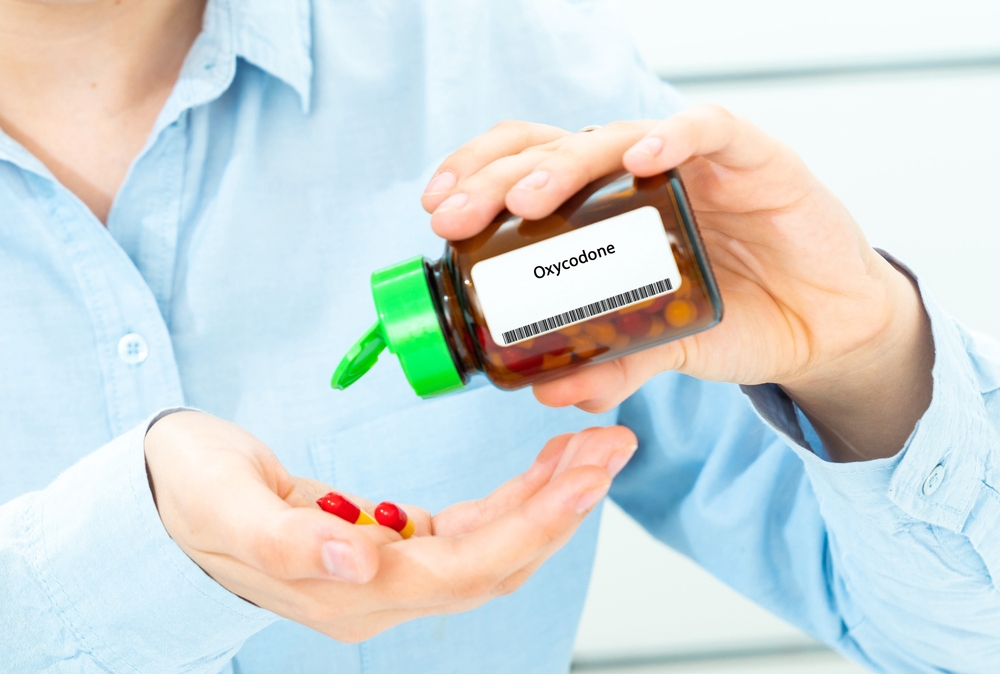Last Updated:
June 10th, 2025
Oxycodone Rehab Treatment | What to Expect
What is Oxycodone treatment?
Oxycodone rehab is a compassionate, carefully structured treatment programme designed to help you overcome oxycodone addiction safely and effectively. It works by gradually guiding you away from dependence through a blend of medical detox and personalised therapy, allowing you to heal both physically and emotionally.
Oxycodone addiction treatment aims to empower you to reclaim your health and independence. Through ongoing support and tailored treatments, rehab helps you understand the reasons behind your addiction and prepares you for a life free from substance dependence. The ultimate goal is not simply achieving sobriety but giving you the tools and confidence to sustain a fulfilling, healthy life beyond treatment.

When is the right time for Oxycodone rehab?
It’s important to understand that there is never a perfect ‘right’ or ‘wrong’ moment to start oxycodone rehab. However, the urgency should always be towards sooner rather than later, particularly with opioids as addictive and potentially devastating as oxycodone. The quicker you seek help, the easier it is to stop addiction from escalating and causing greater harm in your life.
If you’re still unsure about whether rehab is necessary, here are some common signs that oxycodone might be becoming an issue in your life, indicating a need for quick intervention:
- Do you find yourself needing higher doses of oxycodone to achieve the same relief or effects you once experienced at lower doses?
- Have you noticed withdrawal symptoms, such as anxiety, nausea, aches or irritability, when you reduce or stop taking oxycodone?
- Is oxycodone becoming a central focus of your daily life, affecting your responsibilities, relationships or activities you once enjoyed?
- Are you often preoccupied with obtaining or thinking about your next dose, feeling anxious or unsettled until it’s secured?
- Have friends, family members or loved ones expressed concern about your oxycodone use, even if you don’t fully agree with their observations?
- Have you tried and struggled to cut down or stop using oxycodone on your own, only to find yourself returning to it?
If you’re answering ‘yes’ to these questions, it might be time to consider reaching out for professional oxycodone addiction treatment. Remember, early intervention is key.
Busting the oxycodone treatment myths
Some people feel hesitant about rehab because of how the process is depicted in the media. Films and TV often paint rehab as either an intimidating, prison-like experience or something so easy that recovery can be achieved as quickly as a jump cut between scenes. In reality, neither of these portrayals reflects what rehab truly involves.
That’s why we find it helpful to address common myths and misconceptions around oxycodone treatment, setting the record straight and showing what really happens during rehab:
A deeper look into oxycodone inpatient treatment
Now that we’ve cleared up some misconceptions, let’s explore what oxycodone rehab actually involves by taking a closer look at its structure. Understanding what happens inside rehab can help ease any uncertainties you might have.
Detox
Oxycodone addiction treatment typically begins with detox, where oxycodone safely leaves your body. This stage is supported by medical staff who ensure you’re comfortable and secure. While detox is essential, it’s only the first step towards recovery, laying a foundation for the therapeutic work ahead.
Therapies that support your recovery:
- Cognitive behavioural therapy (CBT):
CBT helps you understand the thought patterns behind your oxycodone use. By learning how to identify and change these unhealthy beliefs and behaviours, you can build new habits that help prevent relapse.
- Dialectical behavioural therapy (DBT):
DBT teaches emotional regulation and distress tolerance skills. For oxycodone recovery, this means you’re better equipped to handle challenging situations and emotional triggers without resorting back to substance use.
- Group counselling:
Participating in group therapy lets you connect with others who share similar experiences. These supportive networks can significantly reduce feelings of isolation, offering encouragement and collective strength throughout recovery.
- 1-to-1 therapy:
Personalised therapy sessions let you safely explore your unique experiences with oxycodone addiction. Working individually with a therapist means treatment is tailored specifically to you, focusing on the root causes of addiction and building personalised coping strategies.
- Holistic therapies:
Holistic treatments, such as yoga, meditation, mindfulness or art therapy, help you heal both mentally and physically. They reduce stress and create new pathways to self-expression, enhancing overall well-being.

Aftercare
After completing inpatient treatment, aftercare serves as your ongoing support network, acting as a safety net while you transition back to daily life. Regular aftercare sessions reinforce skills you’ve learned, help you stay accountable and provide a place to reassess relapse prevention strategies if challenges arise. It’s there to ensure your return to everyday life is secure, stable and sustainable.
What are the next steps?
If you’re concerned about your own oxycodone use or worried about someone you care deeply about, Addiction Helper is here to support you. We provide compassionate guidance towards oxycodone rehab centres tailored specifically to your situation.
Take the first step towards lasting recovery today by reaching out to our understanding team, who will confidentially assist you in finding the treatment path most suitable for achieving a brighter, addiction-free future.
Our compassionate team are ready and available to take your call, and guide you towards lasting the lasting addiction recovery you deserve.

